****SOMETIMES WISHES COME TRUE**** After rapidly losing two and a half stones I was eventually diagnosed with oesophageal cancer in September 2012 (four tumours). Sadly, I have been unable to attend our local cancer support group for the last 3 months due to the devastating side effects of chemotherapy treatment; missing you all folks. This weekend I will be going in for high risk surgery (my medical teams words not mine) at the Glasgow Royal Infirmary.
So far I have been amazingly lucky to have survived:
SCLC (chemo and radiotherapy in 1993)
NSCLC (surgery in 2007)
Basal cell carcinoma (receiving ongoing surgeries and treatments since 2004)
For this my latest and current oesophageal battle I have underwent chemo through September 2012 and now having follow up surgery 18/2/2013.
Due to my age and past cancer history the surgery will be interestingly different for my medical team. Anaesthetising and operating on someone with hardly any lungs left is quite a challenge. However, after some on/off doubts, they have finally agreed on a speculative off the cuff operation and I am sure my brilliant team will rise to the challenge. I am very confident I will be back to my usual old self after a lengthy period of testing rehab.
After the above stats can I just quote ‘Oor Wullie’ a Scots cartoon character? “Jings, crivvens, and help ma boab!”
Over the years I have now battled 6 different types of cancer. I am now 73 yrs old and live alone since my beloved wife died of this blasted oesophageal cancer in 2000 after two kids and 35 yrs of marriage. Thankfully I still lead a mainly pain free but slower paced, active, interesting life, and always count my blessings rather than dwell on the negatives. Hopefully my history, experiences, battles won and lessons learned, can help motivate and inspire others.
Thanks to some amazing researchers, practitioners and constantly improving modern drugs and treatments, survival rates are increasing year by year. Cancer is on the run and every day is closer to the time when this deadly disease will be beaten. Watching the latest research updates indicates that cancer supremacy days are definitely numbered. We are in an exciting time of extraordinarily rapid medical advances with survival rates increasing monthly. Today’s newly diagnosed will be part of an anticipated unprecedented surge in survivals. It will be 5 years before present day stats are assessed and published, but the profession expect the results to prove that the pendulum is increasingly swinging in the patients favour, and that cancer will soon no longer be feared as an automatic death sentence.
I will be hospitalised for about a month and regretfully won’t be able to update my support group’s website, as I expect to be in considerable discomfort for some time after surgery and don’t know how I will manage things thereafter.
My 20 yrs of fighting cancer and winning is I believe largely down to my use of regular exercise (Isometrics and Aerobics). Throughout all my adult life I have always used exercise (about 30/40 minutes every other day if pos) to maintain a sense of wellbeing and to control and nip in the bud any signs of depression. Even at my advancing age, it is still continuing to work for me.
MY TOP TIP
As a double lung cancer survivor I found reduced lung capacity to be the most debilitating. Unlikely though it may seem I discovered freestyle aerobics to be the best way to improve breathing. Start very slowly with minimum reps and gradually build up speed and duration to 30/40 mins daily. After a months commitment you, family and friends, will all be amazed by your improvement.
*****MAKE YOUR WISH*****
I will be back in a month
All the very best
Robert
http://stobhilllungcancersupportgroup.weebly.com/latest-news.html
We are being screwed again, again and again.  Britain's four top medical research regulators are three too many and are squandering taxpayers' money. The UK governments medical quangos which each employ chief executives on salaries of more than £100,000 a year, could be run by a single chief executive, a single board of directors and a single media and communications department.
http://www.bbc.co.uk/news/health-21408941Coca-cola recommended as 'medical cure' for stomach blockages.
 The bubbles and chemical make-up of coca-cola makes it an effective cure for getting rid of stomach blockages, with doctors recommending the drink as an alternative to surgery. Doctors use the soft drink to treat patients with a nasty condition called gastric phytobezoar with a success rate of more than 90 per cent. This is because the fizzy favourite has chemical ingredients that do a similar job to gastric acid while the bubbles help speed up the process. The researchers went through openly published academic papers that detailed 46 patients who were treated with Coke in hospitals worldwide over the past 10 years. A variety of treatments are available to treat it, from lasers and non-surgical endoscopies to full surgery. But of the 46 cases patients given Coca-Cola, exactly half saw the drink destroy the blockage completely and a further 19 only needed non-invasive treatments as a result of Coke's help. Only four needed full surgery giving Coca-Cola a success rating of 91.3 per cent and is a cheap easy-to-perform and safe procedure that can be accomplished at any endoscopy unit.
http://www.telegraph.co.uk/health/healthnews/9785183/Coca-cola-recommended-as-medical-cure-for-stomach-blockages.html Should I get my back pain treated?
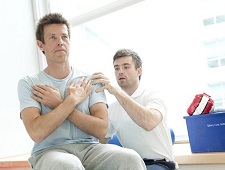 Nearly everyone gets back pain at some point and it can be excruciating. But how safe are the common treatments? Back pain is a symptom, not a disease. Usually no cause is found for it but you should still check it's nothing more serious. So if you have any red flags (as doctors call them) such as you are under 20 or over 55, have lost control of your bladder or bowels, have had cancer in the past, been on steroids for a long time, have weakness or numbness in a leg or arm, foot drop, or numbness around your bottom or genitals, or if you have night pain or progressively worse pain, then see your doctor as a priority. You are still likely to be one of the 90% that gets better within a month. Move normally as soon as possible, because research shows this will get you better faster. Sleep on your side with a pillow between your legs to relieve pressure on your back. Initially you may need paracetamol or something stronger. Naproxen is the safest non-steroidal anti-inflammatory drug but if you have a history of stomach inflammation you may need another drug to protect the lining of your stomach. Some GPs give three days of valium to ease muscle spasm, which can also help you to sleep if the pain is bad. A review of chiropractic interventions for low back pain found no advantage over other treatments and only a slight improvement. There are no set exercises to do while you have the pain but once you have recovered you can try building up a six-pack to strengthen your trunk, which may reduce the risk of a recurrence. http://www.guardian.co.uk/lifeandstyle/2012/may/20/getting-treatment-for-back-pain
FEMALE SMOKERS RISKS RISE DRAMATICALLY  Female smokers have a much greater risk from lung cancer and chronic obstructive lung disease (COLD) than female smokers 20 or 40 years ago, which reflect changes in smoking behaviour. The increased risk in female smokers has been large enough to completely offset improvements in longevity from medical advances that have reduced death rates in the rest of the population over the last 50 years.
Women today smoke more like men than women in previous generations, beginning earlier in adolescence and smoking more cigarettes per day.
http://www.medicalnewstoday.com/releases/255340.phpNEEDING COSMETIC HELP GROWING YOUR OWN WRINKLE FILLER
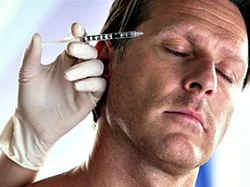 In this treatment - called Isolagan - rather than having bovine collagen from cows - injected into your wrinkles, the patient has his or her own collagen taken and grown in a laboratory which is then injected into their wrinkles.
What are the advantages?
When bovine collagen is used it immediately starts to be broken down by the body, so the effects will start to fade after four to six months. When a person's own collagen is used it stimulates the body to continue to produce more collagen, so the effects last much longer. A surgeon can also keep a sample of the patient's collagen in a laboratory for future use in other wrinkles.
What is involved?
Under a local anesthetic the patient has a small biopsy taken from behind their ear. Collagen is then extracted from this and grown in a laboratory.
How long does it take to recover?
A few hours at the most.
When is it available?
This treatment has been available in America for three years, but it has only just reached Britain, where the first volunteers
are currently undergoing trial procedures.
Cost: £2,000 - £2,500
RHINOPLASTY
http://www.privatehealth.co.uk/news/january-2013/rhinoplasty-nose-surgery-37935/Doctors Reveal The Treatments They Would Avoid;
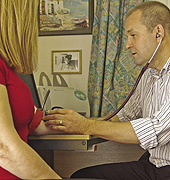 Don’t have any operation or procedure without first reading the guidelines for the condition, looking at the complication rates and the risk of doing nothing. In terms of plastic surgery, I would never advocate long-lasting fillers. People don't want the hassle of coming every four months for injections, but you don't want something that lasts too long in your body, because your body will eventually reject it. It might be an inconvenience to have to come more often, but in the long term it will spare you a bad reaction.
Mark Patrick, consultant anesthetist, University Hospital of South Manchester
Lung cancer 'overtaking breast cancer in European women'  Lung cancer is set to overtake breast cancer as the biggest cause of female cancer death in Europe, say experts. This is already the case in the UK and Poland, the Annals of Oncology reports. The rise reflects a surge in the number of women who started smoking in the 1960s and 1970s, the experts say. The lung cancer death rate will continue on its upward trend for the next few years - but with fewer young European women now starting to smoke, it should decrease with time. http://www.bbc.co.uk/news/health-21424754 Anti-smoking measures around the world
 Canada
The country has some of the lowest
smoking levels in the world following a ban on smoking in workplaces and public places.
Cigarette packets bear graphic images of the damage done to internal organs by smoking.
China
Is the world’s largest producer and consumer of tobacco. In May 2008, in the run-up to the Olympic Games, a ban on smoking in most public buildings came into force in the Chinese capital, Beijing. The move was an attempt to discourage some of China's 350 million smokers and also part of wider efforts to clean up the city ahead of the games. For every three cigarettes lit worldwide, one is smoked in China. Almost 25 per cent of Chinese smoke. This year in its 12th Five Year Plan China promised to ban smoking in public places. This is the first time that China included an antismoking measure into its five-year plan.
France
Took a major step towards a total public ban when it announced it
would prevent smoking in workplaces and other public buildings from 1 February
2007. The law was extended in 2008 to include cafés, restaurants and bars. Any
smoker caught flouting the ban after then can be fined up to 450 euro’s, while
those who turn a blind eye to smokers on their premises can be fined up to 750
euro’s
Germany
Eight states, including Berlin, ushered in 2008 declaring their pubs
and restaurants smoke-free. German
restaurants and pubs have strongly resisted the bans, not only because of the
potential loss of income but partly because of an earlier crackdown on smoking
initiated by Adolf Hitler's Nazi regime. The sensitivity of the issue has prompted the authorities to allow special rooms to be set up purely for smokers. The toughest rules in Germany are in Bavaria, where no smoking rooms will be allowed. German doctors were among the first to identify the link between smoking and lung cancer. Nazi Germany led the first antismoking campaign in modern history.
Greece
Introduced its third attempt at banning smoking in public places on 1 July 2009. Under the new rules, smoking will be prohibited in hospitals, schools, vehicles and all public spaces. But small restaurants will be allowed to choose to admit exclusively smokers (or non-smokers), and bigger ones can have smoking areas. Previous attempts to introduce a ban in 2002 and 2003 failed after they were largely ignored.
Ireland
Imposed tough antismoking legislation in March 2004, banning smoking in pubs, restaurants and other enclosed workplaces. Anyone caught smoking in a prohibited location now faces a fine of up to 3,000 euro’s (£2,000).
United Kingdom
Smoking is banned in nearly all enclosed public spaces -including bars, restaurants and workplaces. The ban came into force in England early on 1 July. Scotland introduced a ban in March 2006, followed by Walesand Northern Irelandin April 2007. People smoking in pubs, restaurants, offices and on public transport face on-the-spot
fines of £50, while those in charge of the premises could also be fined for allowing smoking.
United States
California has some of the toughest and most extensive antismoking legislation
anywhere in the world. A ban on smoking inside or within 1.5 metres of any
public building came into force in 1993 -recently extended to six metres.
Smoking is also banned in restaurants, bars and enclosed workplaces - and on
beaches - throughout the state. In New York, smoking has been banned in bars, clubs and restaurants since March 2003.
India
A ban on smoking in public places came into force in October 2008 in an effort to curb high levels of tobacco addiction. Anyone caught breaking the law will be fined 200 rupees ($4.50). The law also bans direct and indirect advertising of tobacco products and the sale of cigarettes to children.
Iran
Banned smoking in public buildings and tobacco advertising in October 2003 - but both measures have had little effect. Smoking was banned in religious and administrative buildings, as well as hotels, restaurants, airports, cinemas and sports centre’s. Despite this, the ban is largely ignored and laws rarely enforced.
http://www.telegraph.co.uk/health/healthnews/8371205/Anti-smoking-measures-around-the-world.html
The antioxidant myth is too easy to swallow
 People are hooked on the fallacy that 'antioxidant' is a byword for 'healthy'. Large studies have repeatedly shown that, with the possible exception of vitamin D, antioxidant supplements have negligible positive effect on healthy people, at least in such as preventing people getting cancer or dying prematurely. And some supplements – notably vitamins A, E and beta-carotene – even seem to slightly raise the risk of disease and early death. But a quick trawl of Twitter reveals, huge swaths of the public remain convinced that "antioxidant" is a byword for "healthy". One possible reason for our entrenched attitudes is the use of the word "antioxidants" in adverts proclaiming the health benefits of various foods and drinks. This isn't for want of regulation, and the Advertising Standards Authority have repeatedly upheld complaints about adverts that make unsupported claims about antioxidants' benefits. But there's probably a deeper reason for our collective refusal to swallow the bitter pill of scientific evidence. The actual, proven things that can reduce our risks of cancer, heart disease, diabetes – and all the other chronic nasties that come with an ageing population – are somewhat more prosaic. Don't smoke. Stay in shape. Eat a balanced diet. Limit alcohol intake. Keep active. This is hard work. Putting our faith in a word, and a pill – however comforting it may sound – is a mirage and a fallacy. Antioxidants do not prolong our lives nor prevent cancer, despite what we want to believe. http://www.guardian.co.uk/commentisfree/2013/jan/10/antioxidant-myth-easy-to-swallow
Many cancer patients are struggling alone 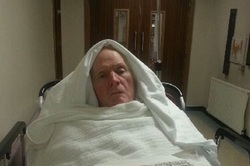 Thousands of cancer patients struggle to manage their treatment and recovery because they get no support from family or friends. A survey by Macmillan Cancer Support suggests one in four newly-diagnosed patients lacks support. It equates to about 70,000 people in the UK struggling to look after themselves with no help. The research also found more than half of doctors have had patients refuse treatment because of a lack of support. Half of those who said they were isolated had skipped meals or not eaten properly due to lack of help. And more than a quarter had been unable to wash themselves properly, while 60% had not been able to do household chores.
http://www.bbc.co.uk/news/health-21380607 Doctors use medical GPS to treat deadly heart condition GPS helps drivers on the roads, and now, it’s guiding the way in a Boston
operating room. Medical professionals at Massachusetts General Hospital are using the technology to help them treat atrial fibrillation, the most common form of heart arrhythmia or irregular heartbeat, CBS Boston reports.
http://www.cbsnews.com/8301-204_162-57568182/massachusetts-doctors-use-medical-gps-to-treat-deadly-heart-condition/ Can calorie counting make you live longer?
 Bombarded with advertisements promising a longer, healthier life, the BBC's Los Angeles reporter goes in search of eternal youth. At 6ft 1in (1.85m), Martin Knight weighs 10st 4lb (65.77kg). Breakfast - the same every day - is a 170-calorie mixture of kale, shallots, sprouted oats, tomato paste and olive oil. He washes it down with green or white tea. Knight follows a calorie-restricted diet. He eats 10 small meals a day and survives on about 1,900 calories - more than most people who restrict their calorie intake Each meal is weighed to ensure that his daily intake is accurate. Adherents of this approach to health are known as Cronies - Calorie Restriction with Optimal Nutrition - and Dr Janet Tomiyama, a psychologist at the University of California, is studying them.
http://www.bbc.co.uk/news/magazine-21125016#
Introduction to Breast Cancer  It is recommended that women age 40 and older have regular mammograms. Screening is important because the earlier cancer is detected the better the chances are for successful treatment and survival. When detection occurs before any spread, the five-year survival rate is 97%. How to Recognize Breast Cancer Symptoms- 159,622 http://www.youtube.com/watch?feature=fvwp&v=yTHyMNBkbOY&NR=1 Breast Tissue Biopsy- 619,511 http://www.youtube.com/watch?v=_tDR0Vwm3go Britain's four top medical research regulators are three too many and are squandering taxpayers' money
 We are being screwed again, again and again. The UK governments medical quangos which each employ chief executives on salaries of more than £100,000 a year, could be run by a single chief executive, a single board of directors and a single media and communications department. http://www.bbc.co.uk/news/health-21408941
Stafford Hospital NHS staff should face prosecution  NHS staff should face prosecution, according to a public inquiry into failings at Stafford Hospital. Years of abuse and neglect at the hospital led to the unnecessary deaths of hundreds of patients. But inquiry chairman, Robert Francis QC, said the failings went right to the top of the health service. The families of victims have voiced anger that no-one has been sufficiently punished for their roles. Senior managers were able to leave the trust with little sanction, while most doctors and nurses involved have escaped censure from their professional regulators. The "appalling" levels of care that led to needless deaths have already been well documented by a 2009 report by the Healthcare Commission and an independent inquiry in 2010. They both criticised the cost-cutting and target-chasing culture that had developed at the Mid Staffordshire Trust, which ran the hospital. http://www.bbc.co.uk/news/health-21341766 Stafford Hospital scandal: calls for police inquiry
http://www.bbc.co.uk/news/uk-england-stoke-staffordshire-21393729 Non-Hodgkin Lymphoma Cancer Patients To Get Faster Treatment
Cancer patients can now get vital treatment in just five minutes instead of two hours after a new injection procedure was trialled by a hospital. Patients diagnosed with follicular non-Hodgkin lymphoma (NHL), a disease that attacks one specific type of infection-fighting cell, previously had rituximab administered via an intravenous drip. But the trial at SouthamptonGeneral Hospital can now deliver a two-hour dose of drugs in around five minutes. The procedure, which is just as effective, should now be rolled out nationwide. Around 4,000 people, mainly in their 60s, are diagnosed with the disease in the UK every year and the majority of them will receive the drug, which targets and destroys specific proteins on the surface of cancerous cells, alongside chemotherapy to help eliminate all signs of the lymphoma and induce remission. At the moment, most sufferers receive both treatments via a drip in a four-hour session once every three weeks.
http://www.huffingtonpost.co.uk/2013/01/22/cancer-non-hodgkin-lymphoma-patient-speed_n_2526486.html?utm_hp_ref=uk-health-news
WHY NON-SMOKERS GET LUNG CANCER The first global study into the effects of passive smoking estimated it causes 600,000 respiratory deaths every year and one third of those killed are children who have been exposed to smoke at home.
STUB IT ANTI SMOKING CAMPAIGN 2013
Date set for tobacco display and vending machine bans in Scotland 
DEBATE EXAMINES ASSISTED DYING LAW 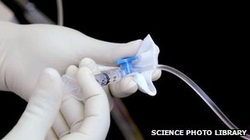 A theological debate is being held in Glasgow on moves to change the law on physician-assisted suicide. It comes as work continues at Holyrood by independent MSP Margo MacDonald to bring forward another bill to allow assisted suicide. She insists her call to allow assisted suicide for those suffering terminal conditions is not a moral issue. Ms MacDonald, who has Parkinson's disease, has claimed there is public support for a change in the law. http://www.bbc.co.uk/news/uk-scotland-scotland-politics-21389881 NEEDING COSMETIC HELP
QUICK-FIX BOTOX
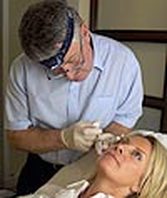 Botox, the wrinkle-filler has been the treatment and now a new procedure is set to offer a variation on the theme. The effects of Botox normally last for four to six months. But the new treatment is about to be launched with affects that last just two to three weeks. It's aimed at people who want the procedure simply for a special occasion or who are more cautious about trying Botox and would like to test out a more temporary procedure first.
What are the advantages?
A patient would be able to try a new look for a shorter period of time.
What is involved?:
The treatment is exactly the same as Botox, but the fluid used is a shorter-acting type.
How long does it take to recover?:
A few hours at most.
When is it available?:
The middle of the year.
Cost: Under £200
For The Older Woman, Mammograms Every 2 Years
Good as Annual Test 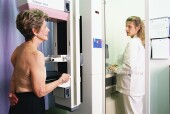 For older women ages 66 to 74, getting a mammogram every two years appears as good as getting one every year, according to a new study The risk of having breast cancer detected is no greater if you screen every two years compared to every year, Women screened every year are more likely to have false-positive results than women screened every two years. http://www.cancercompass.com/cancer-news/article/43622.htm?c=NL20130206 NHS consultants must be better managed
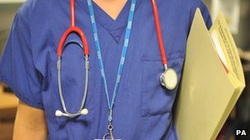 The NHS must manage its consultants better to secure improvements. A watchdog's report analyses the impact of the contract, negotiated by the then Labour government a decade ago, which was designed to provide a more defined career structure and reward for consultants who made the biggest contribution to the NHS. The package was approved by senior hospital doctors after a ballot of about 97% of consultants working in the health service. The arrangements led to a 28% increase in the maximum pay for senior consultants from £68,505 to £88,010 while the lower end of the pay band increased by 24% from £52,640 to £65,035. Average earnings rose by 12% the year after the contract was introduced.
http://www.bbc.co.uk/news/uk-politics-21341953 Scottish consortium wins £100m drug research contract
 A consortium of Scottish scientists has won a £100m contract to research new medicines. Life sciences firm Bio City Scotland in Lanarkshire and DundeeUniversity beat off international competition to win funding for a new screening centre. The deal includes an investment of £16.3m from the European Innovative Medicines Initiative (IMI) and £3.5m from the Scottish Funding Council and the Scottish government. A further £75m worth of proprietary drug compounds is being made available to project partners by participating pharmaceutical companies. The cash will be used to set up a screening centre at Bio City's facility in Newhouse to undertake research into new treatments. A team of 30 international partners will work together to share the chemical compounds that form the building blocks of new medicines. http://www.bbc.co.uk/news/uk-scotland-scotland-business-21366197
|














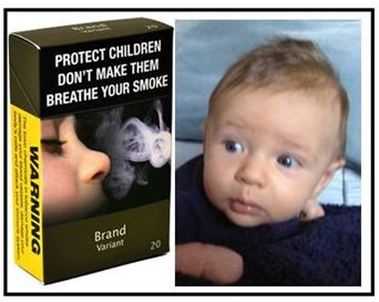

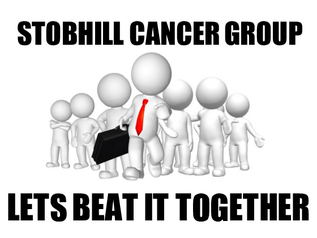





 RSS Feed
RSS Feed